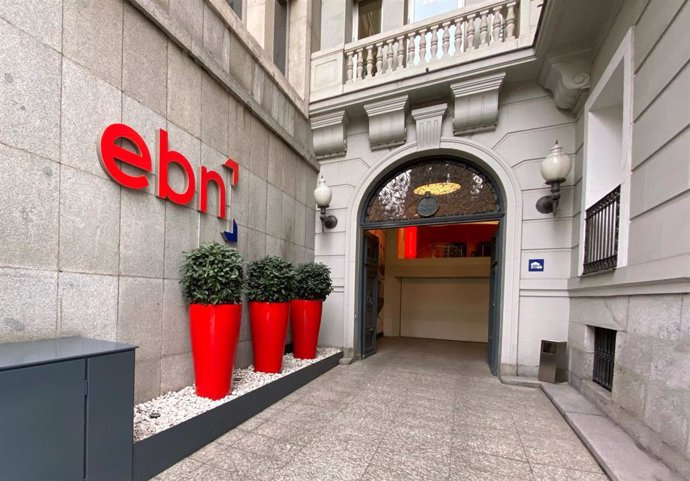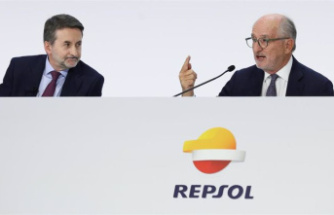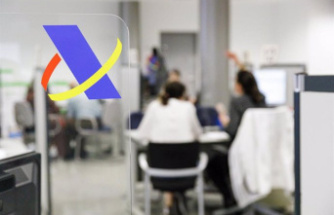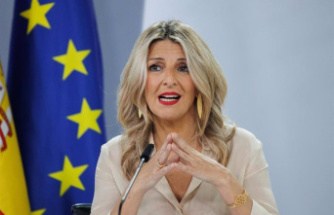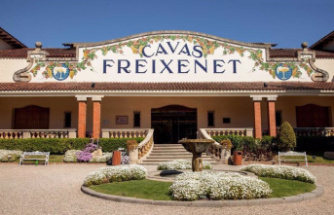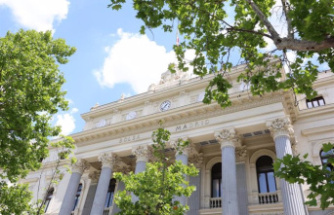MADRID, 17 Mar. (EUROPA PRESS) -
EBN Banco has vindicated its commitment to marketing investment funds with 'clean classes' on its platform in order to attract clients through lower commissions, while the entity itself assumes the retrocession (commissions that the managers pay to the clients). distributors and marketers and that has previously collected them from the investor including them in the price) from those managers that do not have clean classes.
The director of customer relations at EBN Banco, Manuel Puente, explained in an interview with Europa Press that the argument used by the rest of the entities is that the 'clean class' is reserved for institutional clients and you cannot enter with assets. less than one million euros, while with EBN "you can enter from 2,500 euros."
In line with these lower commissions, Puente explains that with the 'clean class' of a fund (the same fund can have several classes) a client can save between 1,000 and 3,000 euros, while EBN as an entity only charges a commission of the 0.3% in custody, which is why he recognizes that they need "a lot of volume."
"We access the cheapest class, because then we explicitly charge the client, but normally the sum between what the fund costs plus what we take is cheaper than the type of the fund with retrocession," the investment director says. wealth management, Daniel Olea.
This is one of the legs of EBN Banco's business, followed by financial advice - which is accessible to assets starting at 300,000 euros - and portfolio management - with a minimum entry amount of 50,000 euros.
In that sense, Olea states in the same interview with Europa Press that they manage assets worth 250 million euros and that the average profile of their clients shows an asset of 200,000 euros.
Regarding portfolio management, Olea details the four portfolios - launched in 2017 - that they have: conservative, moderate, dynamic and aggressive, while the first assumes a percentage allocated to the stock market of between 15% and 35% while the aggressive one allocates between 75% and all of the assets for this purpose.
However, the portfolio most in demand by clients, Olea points out, is the moderate one, which reaped a 10.6% return in 2023, beating its reference index ('benchmark', in jargon) by two points.
On the other hand, Olea places special emphasis on the investment time horizons recommended for each portfolio: "We are very adamant that you should not invest in a conservative portfolio if you do not have more than three years of investment term; it is true that we "We try to be pretty strict with that."
"In panic situations there are people who forget that and we do important pedagogical work," adds the executive to recall precedents such as the outbreak of the Palestinian-Israeli conflict last October and the banking crisis of which he now makes a anus.
Regarding their preferences in the market, the entity pointed last month in the direction of quality public and corporate bonds, as well as small and medium-sized companies on the stock market; a positioning that, according to Olea, "remains very similar."
In line with this, he elaborates on how they like the European real estate sector, the SOCIMIs, "not because of a profit issue but because what we have seen is that the sector has been punished due to a valuation issue" and points out that "with what interest rates stabilize, that sector already pays us between 6% and 8% in dividends".
He also stops to explain why they have "quite a lot of conviction" in small companies: "buying something at these valuations, as small and medium-sized companies are, seems to us that it will give us a profitability above the average for the next few years." market".
Contrary to the market consensus, which is now forcefully attacking technology firms, Olea argues that growth is not worth it at any price.
"In the end, we know something with certainty in valuation, but profit expectations are something that no one knows and that you have to estimate," he says, commenting, as an example, that he prefers a sector like health, this being also a sector of growth.
On the debt side, he considers that they have a longer duration in the portfolios - around four and five years - than the market average because the current rates are worth it.
This is supported from the perspective that they are less optimistic than what the market is quoting in relation to how inflation will be controlled and they foresee that rates will be higher for a 'last mile' of the inflation that will cost dominate, both in Europe and in the United States.
Going into detail about the Spanish market - in which they have a residual position -, Olea begins to assess that the current drought of IPOs will not find a terrain of greater visibility until the reductions in interest rates materialize, as this will allow to reduce the costs of associated operations.
In addition, it focuses on the fact that Spain has also been penalized by the political issue, the tax on banks and energy companies, which have not helped foreign investors much.
However, he maintains that, if you look at the aggregate, the Spanish market "is attractive."

